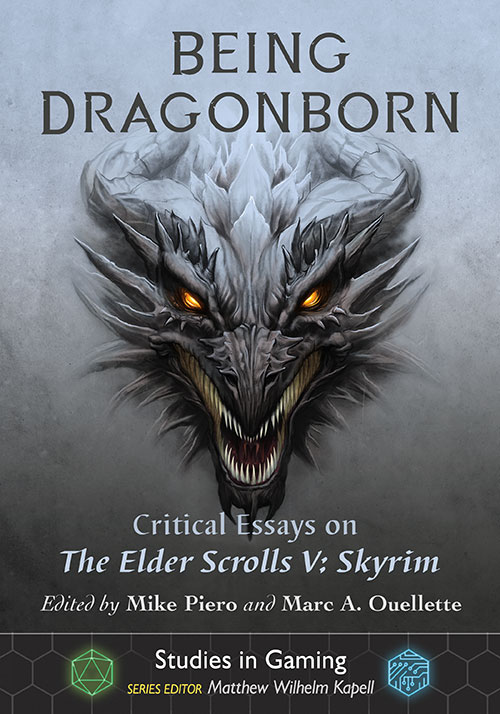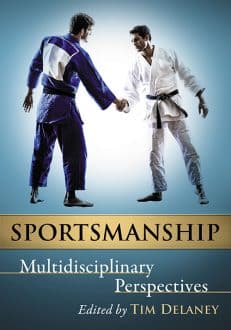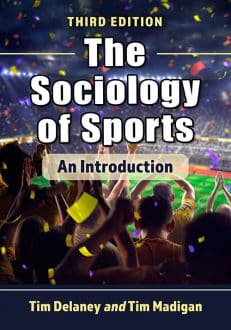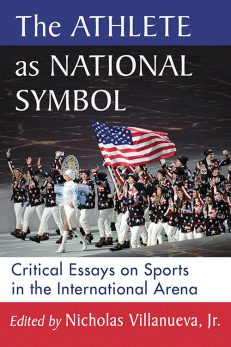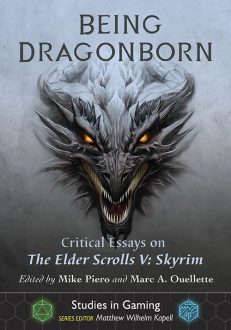Being Dragonborn
Critical Essays on The Elder Scrolls V: Skyrim
$29.95
In stock
About the Book
The Elder Scrolls V: Skyrim is one of the bestselling and most influential video games of the past decade. From the return of world-threatening dragons to an ongoing civil war, the province of Skyrim is rich with adventure, lore, magic, history, and stunning vistas. Beyond its visual spectacle alone, Skyrim is an exemplary gameworld that reproduces out-of-game realities, controversies, and histories for its players. Being Dragonborn, then, comes to signify a host of ethical and ideological choices for the player, both inside and outside the gameworld. These essays show how playing Skyrim, in many ways, is akin to “playing” 21st century America with its various crises, conflicts, divisions, and inequalities. Topics covered include racial inequality and white supremacy, gender construction and misogyny, the politics of modding, rhetorics of gameplay, and narrative features. Instructors considering this book for use in a course may request an examination copy here.
About the Author(s)
Mike Piero is a Professor of English at Cuyahoga Community College in Cleveland, Ohio.
Marc A. Ouellette is an award-winning educator who teaches cultural and gender studies at Old Dominion University, where he is the Learning Games Initiative Research Fellow.
Series editor Matthew Wilhelm Kapell teaches American studies, anthropology, and writing at Pace University in New York.
Bibliographic Details
Edited by Mike Piero and Marc A. Ouellette
Series Editor Matthew Wilhelm Kapell
Format: softcover (7 x 10)
Pages: 236
Bibliographic Info: notes, bibliography, index
Copyright Date: 2021
pISBN: 978-1-4766-7784-2
eISBN: 978-1-4766-4356-4
Imprint: McFarland
Series: Studies in Gaming
Table of Contents
Acknowledgments v
Introduction: Skyrim as an Exemplary Gameworld
Mike Piero and Marc A. Ouellette 1
Part I: “Skyrim is our land”: Neomedievalism, Heroism and Ethno-Nationalist Gameplay
From Hero to Zero: Nationalistic Narratives and the Dogma of Being Dragonborn
Joshua Call and Thomas Lecaque 14
Grounding the Neomedieval Gameworld: The Dragonborn Between History and Myth
Alicia McKenzie 28
Expanding the Frontier Through War: Skyrim’s Ludic Contribution to the Frontier Myth
Brent Kice 45
Part II: “Then I took an arrow in the knee”: Agency and Alterity
Queer Harpies and Vicious Dryads: Hagravens, Spriggans and Abject Female Monstrosity in Skyrim
Sarah Stang 60
All the Wheels of Cheese: Hoarding and Collecting Behaviors in Skyrim
D’An Knowles Ball 75
Escapism as Contested Space: The Politics of Modding Skyrim
Liamog S. Drislane 91
Part III: “Sky above, voice within”: Ethics and Politics Within Skyrim’s Cosmology
Nature Versus Player: Skyrim Players and Modders as Ecological Force
Misha Grifka Wander 106
Portraits of the Neomedieval Family-Idyllic: Patriarchal Oikos and a Love Without Love in Skyrim
Mike Piero and Marc A. Ouellette 120
Skyrim’s Competitive Cosmology: A Fluctuating Economy of Power and Parasitic Deification
Trevor B. Williams 137
Testing Your Thu’um: Rhetoric, Violence, Uncertainty and the Dragonborn
Stephen M. Llano 154
Part IV: “Who wrote the Elder Scrolls?” Emergent Narratives and Difficult Questions
Emergent Worlds and Illusions of Agency: Worldbuilding as Design Practice in Skyrim
Wendi Sierra 172
Taking Your Time as Dragonborn: Reconciling Skyrim’s Ludic and Narrative Dimensions Through a Detective Story Typology
Andrew A. Todd 188
The Death of Paarthurnax: The “Good Temptation”?
C. Anne Engert and Tony Perrello 202
About the Contributors 221
Index 223
Book Reviews & Awards
- “Whether you are a games scholar, a student, or a fan of the Elder Scrolls franchise there is something for everyone in Being Dragonborn. Mike Piero and Marc A. Ouellette have curated a stellar collection of thoughtfully crafted and accessibly written critical essays on Skyrim that is sure to be added to many reading lists. Diverse in its perspectives, this edited collection dives into the complexities of one of the most compelling video games of its time in terms of world design, lore, and scope of possible gameplay. With Skyrim at the core, the chapters unfold through carefully interwoven topics including heroism, agency, ethics, emergent narrative, and more. A must read for anyone who is interested in the socio, political, and cultural impact of Skyrim in particular, and video games in general.”—Kelly Boudreau, Harrisburg University of Science & Technology

